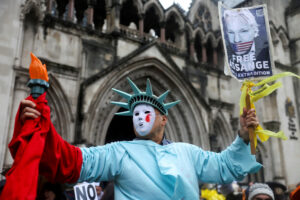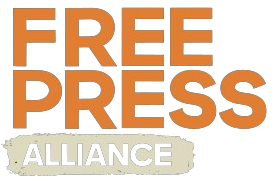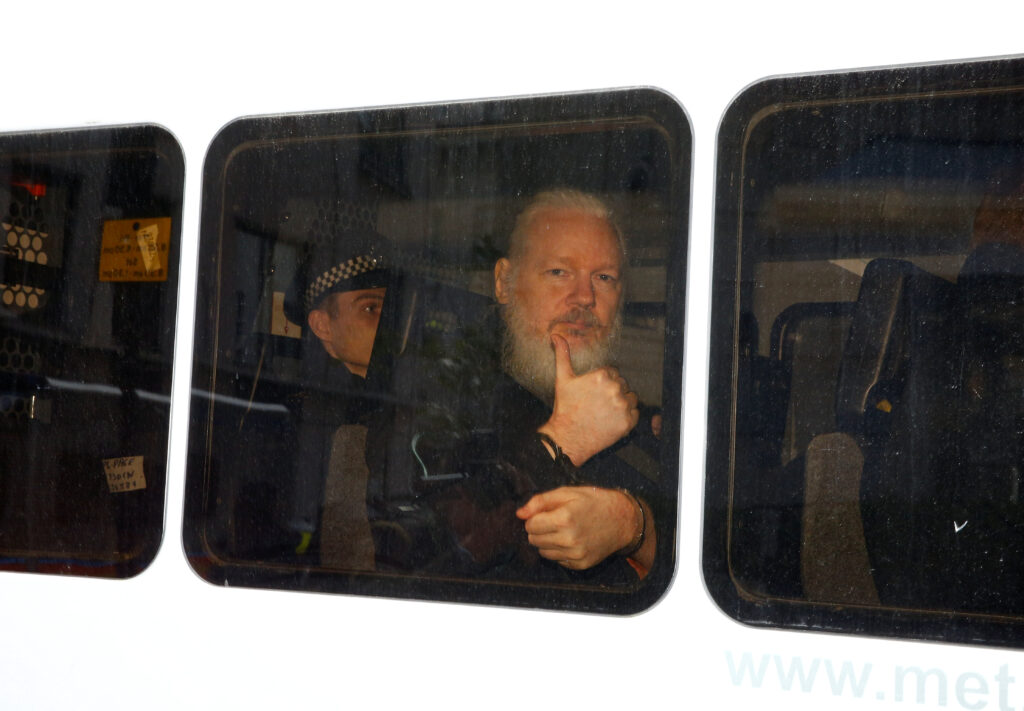Julian Assange taught himself to program at the age of 16. As a teenager he called himself ‘Mendax’ and was part of a hacker group called the ‘International Subversives’, which later got him into legal trouble with the Australian authorities and he was charged with 31 computer crimes, of which he was found guilty of 25, but he got off scot-free as a minor because his case was declared a juvenile curiosity and he only had to pay a small fine.
In 2003, he began a career in physics and mathematics, but after three years he decided to drop out to pursue his true passion, computer science.
In 2006, he co-founded WikiLeaks, a website dedicated to the disclosure of confidential documents and images, with the aim of informing and revealing cases of corruption and political scandals.
His first milestone was in 2007 with the disclosure of the US Army manual for soldiers interacting with prisoners at Guantánamo Bay, Cuba. This made him a target for the US government, which would later seek his extradition from his incarceration in Belmarsh Prison, London in 2019 to the present day.
After that revelation, WikiLeaks continued to publish internal documents, emails, names, addresses, messages and videos from the US and other countries such as the UK, or organizations such as the Church of Scientology.
In 2010, Assange was indicted in Sweden for alleged sexual offences, charges he always denied and which the prosecution would drop in 2019. During that period, Assange was confined to his home and continued to expose confidential US government documents, most notably those related to the war in Afghanistan and how the country’s actions unjustly took the lives of Afghan citizens and two Reuters journalists. Information about the Iraq war was also revealed, including a tally of the number of civilian deaths and abuses by Iraqi military and police.
During his time at the Ecuadorian embassy in London, and by gaining support from then President Rafael Correa, WikiLeaks continued to expose emails from London and Syrian politicians, ministries and companies. WikiLeaks continued to expose email information from London and Syrian politicians, ministries and companies. He also spoke out at a press conference to demand that the US government drop charges against him and WikiLeaks.
He also brought to light emails from Hillary Clinton’s team that speculated that the presidential candidate had been favored over her opponent Bernie Sanders, as well as confidential CIA documents about its spying software.
In 2019, Assange is invited to leave the Ecuadorian embassy and arrested for violating the bail agreement, for which he is sentenced to 50 weeks in Belmarsh Prison in London. However, the United States is seeking his extradition to face at least 17 charges for violating the Espionage Act.
He has managed to avoid extradition for now, as the UK government has allowed him to appeal the court decision.
The most important leaks from WikiLeaks
In 2007, WikiLeaks leaked confidential documents related to the Guantánamo prison, revealing the US Navy manual.
On 25 July 2010, WikiLeaks leaked many documents on the war in Afghanistan, known as the ‘Afghanistan War Diary’, which provided an inside view of the war from 2004 to 2010.
Similarly, on 22 October 2010, WikiLeaks published more than 391,000 classified military documents on the Iraq war, providing detailed information on incidents, civilian casualties and military activities.
From November 2010 to September 2011, WikiLeaks began publishing many confidential US diplomatic cables, known as ‘Cablegate’. These cables provided information on international relations, diplomatic conversations and assessments of world leaders.
In March through September 2017, WikiLeaks published a series of documents describing hacking tools used by the US Central Intelligence Agency (CIA). These documents, known as Vault 7, revealed details about espionage programs and cyberattack techniques.

An attack on press freedom?
The extradition of Julian Assange is perceived as an attack on press freedom. The essence of freedom of the press lies not only in the professional role, but in unrestricted access to information, in the possibility for people to exercise their right to choose what knowledge they wish to acquire and to participate in society.
The secrets kept by the United States, the covert operations they execute on behalf of their citizens, are revealing of the lack of true freedom in the nation of American dreams.
Convicting Assange for disclosing classified documents sets a precedent for journalists, who could face persecution for exposing the truth and denouncing injustices in their respective countries. This could ultimately kill press freedom and sow the seeds of disinformation, as journalists may be afraid to investigate the truth, leading to a dangerous information vacuum.
Julian Assange’s work has highlighted the importance of transparency and access to information in a democratic society. Through his actions, he has challenged the status quo and questioned the power established by organizations and governments, reminding us that accountability and responsibility are fundamental to the healthy functioning of any institution. As such, it has had a positive impact on investigative journalism and the right to information, paving the way for press freedom.

